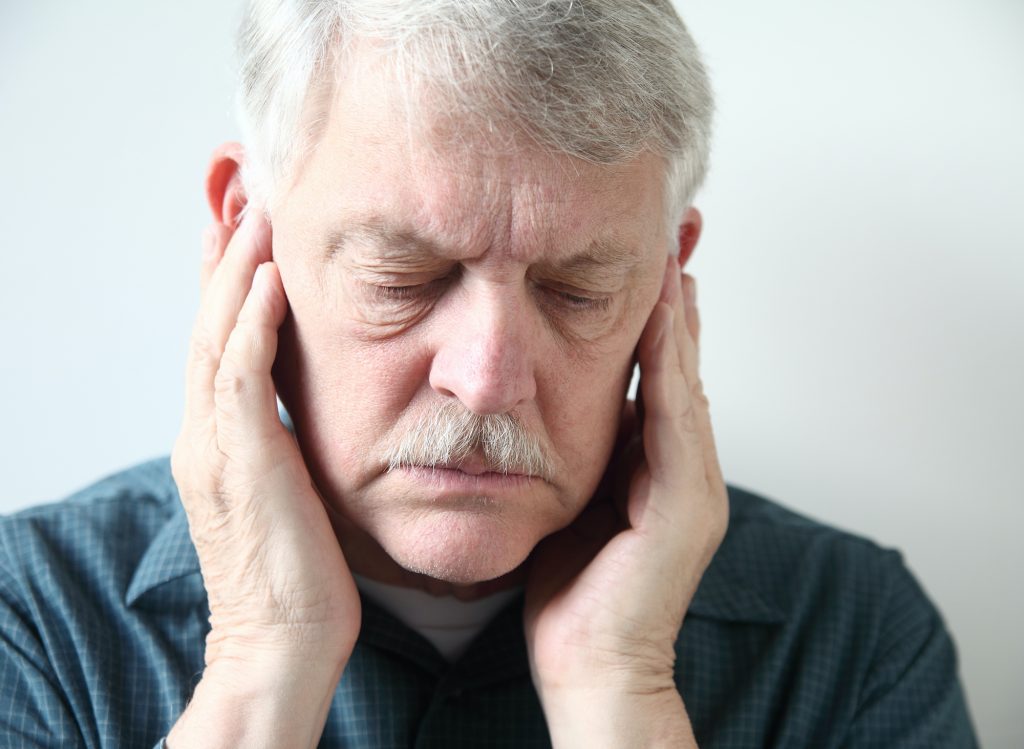What are TMJ and TMD?
Often these terms are used interchangeably, but what do they really refer to? In short, TMJ is an abbreviation for Temporomandibular Joint and TMD stands for Temporomandibular Joint Disorder. The temporomandibular joint is the jaw joint in front of the ear. Everyone has a right and left temporomandibular joint, but only when these joints aren’t functioning properly does someone experience dysfunction, or “TMD”.
TMD typically describes dysfunction of the jaw muscles and joints. When the upper and lower jaws are misaligned, this dysfunction can lead to pain and discomfort. It can be as minor as a slight clicking or popping sensation when the mouth is opening and closing, or as serious as persistent pain extending into the face, neck, and shoulders.
Common disorders associated with dysfunction of the TMJ include:
- Jaw pain
- Headaches
- Migraines
- Dizziness
- Ringing in the ears
- Neck and facial tension and pain
- Tingling or numbness in your fingers
- Limited mouth opening
- Broken teeth

Under prolonged stress, your body may begin to compensate by adapting an unnatural position involving the neck, back, or even your arms or pelvis.
If you’ve been suffering from TMJ or TMD disorder or any of the above symptoms, the Springfield Smiles TMJ and Sleep Center may be able to help. Very few general dentists or physicians recognize and treat TMJ dysfunction. Only specially trained and qualified dentists can help you with your TMJ-related problems.
At our practice, Dr. Victor’s team offers neuromuscular dental techniques designed to address the issues relating to jaw pain and misalignment.
Don’t suffer with oral or facial pain when help is available for your TMJ disorder. To schedule your appointment or consultation with Dr. Victor, call 937-390-3077 today!
TMJ Symptoms
Since the TMJ has a range of motion, symptoms can range from mild to severe. It is important to see an experienced neuromuscular dentist because these symptoms can be related to other causes as well. Most people are not aware of the link between the symptoms listed below and TMJ, so these issues are often overlooked. Unfortunately, far too many people have lived with pain from these symptoms for many years, and have come to accept it as their norm. At Springfield Smiles TMJ and Sleep Center, we give high priority to patient education and strive to let our patients know as much as possible about their condition, its diagnosis, and its treatment.

TMJ symptoms may include, but are not limited to:
Head and face problems
- Headaches and migraines
- Neck pain
- Jaw pain and soreness
- Jaw or neck stiffness
- Facial pain
- Forehead pain
- Posterior skull pain
- Cluster headaches
- Scalp tenderness
Mouth, face, cheek, or chin pain - Dizziness or vertigo
- Tongue pain
- Limited rotation of the head and neck
Jaw problems
- Painful jaw movements
- Limited opening of the jaw
- Locking of the jaw
- Clicking or popping of the jaw joints
- Uneven or unbalanced bite
Throat problems
- Airway constrictions
- Sleep apnea
- Swallowing problems
- Tightness in the throat
- Sore throat
- Voice fluctuations
- Laryngitis
Tooth and gum problems
- Premature tooth wear
“V’s” cut into the side of your teeth - Broken teeth and restorations
- Tooth loss
- Teeth clenching
- Teeth grinding
- Tooth pain
- Tooth sensitivity
Ear problems
- Ringing in the ears
- Hissing or buzzing in the ears
- Clogged ears
- Hearing problems
- Ear pain or soreness
Other problems
- Balance/vertigo issues
- Neck or shoulder pain
- Back pain
- Tingling or numbness in the arms or hands
If you are experiencing one or more of these symptoms, you may want to see a skilled neuromuscular dentist. Contact Dr. Victor’s office online today or call 937-390-3077 for your personal neuromuscular dental consultation.
TMJ Treatment
At Springfield Smiles TMJ and Sleep Center, our highly skilled neuromuscular dental team takes the time to thoroughly evaluate your TMJ symptoms and examine not just your jaw joints, but your body as a whole. Our bodies are finely tuned systems, and often TMJ issues are a result of or can lead to other systemic issues. Once you are diagnosed, Dr. Victor will use his findings to develop a personalized neuromuscular therapy plan to restore your bite and give you relief from your symptoms.
A diagnosis of TMJ/TMD means you have a dysfunction in the jaw joint and jaw muscle areas. As a neuromuscular dentist, Dr. Victor will study the relationship between your teeth, head and neck, posture, jaw muscles, and jaw movements in order to understand the dysfunction and formulate a strategy for improvement. TMJ treatment may involve postural changes, repositioning the jaw into its most comfortable position, and supporting it with an oral appliance. Once comfort is obtained, more permanent support is attained through orthodontics or restorative procedures.
Each individual can have unique jaw joint dysfunction, and a combination of therapies may be recommended for permanent correction. The goal of TMJ treatment is to alleviate pain, soreness, and other symptoms and to improve the function of the jaw joint and the body as a whole.
TMJ treatment may include:
- TENS electrical stimulation
- EMG measurements of facial muscles
- Oral appliances
- Short-term medication
- Physical therapy
- Foot orthotics
- Lifestyle recommendations
- Orthodontics
- Dental restorations
If you are experiencing any of the symptoms associated with TMJ disorders, set up an appointment with Dr. Victor’s caring team today by calling 937-390-3077 or email for your personal neuromuscular dental consultation.
Why are TMJ and related problems so hard to diagnose and treat?
The jaw joint is where dentistry and medicine meet, and many doctors and dentists don’t consider symptoms and issues outside of their area of expertise. Because issues like neck pain, migraines, balance issues, and tooth problems can be rooted in a number of other causes, general dentists and physicians may ignore the possibility that TMJ is the culprit. In other instances, dentists or doctors may recognize a bite problem, but are at a loss for how to find its cause and end up only addressing the symptoms.
The development of impressive diagnostic technology has helped neuromuscular dentistry become less of a mystery in practices committed to finding TMJ answers and offering state-of-the-art diagnosis and treatment.
Can we make headaches and other symptoms disappear?
While temporary relief of TMJ symptoms is sought initially, the goal of neuromuscular dentistry is to identify the root of the problem and treat it for permanent relief. There are no guarantees that your symptoms are in fact caused by TMJ, or that our treatment options will be successful in resolving ancillary issues. However, neuromuscular dentistry has an extremely high rate of success in the treatment of TMJ.
Neuromuscular Treatment
Neuromuscular dentistry, the science of finding a balanced bite that is right for your body, has an extreme relevance to your dental and overall health.
Neuromuscular dental techniques include relaxing the neck and facial muscles to their desired neutral position by specialized low frequency TENS (Transcutaneous Electrical Nerve Stimulation therapy). When a dental bite is established in this position, it helps maintain correct head and neck posture, which allows the jaw joint to function within its desired range of motion. Allowing the body to operate in its desired position frequently provides significant relief of symptoms within one month and at three months.

We offer personalized treatment plans designed to protect the health of your teeth and gums and prevent the condition from affecting your general health.
Why is Neuromuscular Treatment Needed? If TMJ/TMD is left untreated, symptoms can worsen and extend far beyond the jaw and mouth area. They can even become debilitating and limit your lifestyle. Your dental health can be negatively affected in the form of tooth loss, and even your overall health can be affected.
Neuromuscular treatment helps those suffering from TMJ/TMD find the ideal at-rest jaw position. Through the use of physical therapy, medication, orthotic devices, and dental improvements, you may be able to permanently restore a well-aligned bite and avoid the symptoms of neuromuscular dysfunction.
Treatment Benefits from Dr. Victor’s Neuromuscular Approach:
- Non-restrictive, non-invasive custom orthotic
- No surgery or ongoing medications required
- Increased oral range of motion
- Resume a daily lifestyle without pain or TMJ-related symptoms
Don’t suffer with oral or facial pain when help is available for your TMJ disorder. To schedule your appointment or consultation with Dr. Victor, call 937-390-3077 or email today. Our ultimate goal is to serve you and make your experience with us a pleasant one.



